### The Dawn of AI Robotics: Definitions and Key Concepts

Entering the world of #AI robotics requires understanding basic concepts.
AI robotics is essentially a combination of two distinct fields: robotics and artificial intelligence.
Robotics deals with the construction of physical machines capable of performing specific tasks.
Artificial intelligence, on the other hand, focuses on developing algorithms and systems that can perform tasks that usually require human intelligence, such as learning, reasoning, and problem-solving.
Artificial intelligence allows robots to make decisions and interact with their environment without direct human intervention.
The main goal of building AI robots is to create machines that can operate automatically and efficiently in various conditions.
These robots can be used in various industries such as manufacturing, healthcare, customer service, and even entertainment.
Advanced AI robots have the ability to learn from data and improve their performance over time, making them a powerful tool for solving complex problems.
Do you dream of a thriving online store but don’t know where to start?
Rasaweb is your comprehensive solution for e-commerce website design.
✅ Attractive and user-friendly design
✅ Increased sales and revenue⚡ Get free consultation
Types of AI Robots: From Industrial to Personal
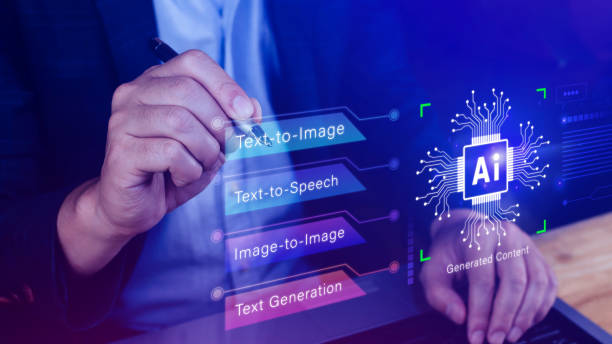
AI robots are designed and built in various types, each suitable for specific applications.
Industrial robots are usually used in factory production lines and perform tasks such as welding, painting, and assembling parts.
These robots are often designed as robotic arms and work with high precision and speed.
Service robots are used in public environments such as hospitals, hotels, and airports and perform tasks such as transporting items, providing information, and assisting people.
Personal robots are designed for use in homes and can perform tasks such as cleaning, gardening, and caring for children and the elderly.
In addition, AI robots are also used in other fields such as medicine (robotic surgery), agriculture (harvesting robots), and space exploration (Mars rovers).
Choosing the right type of AI robot depends on the specific needs and requirements of each application.
Main Components of an AI Robot: Hardware and Software
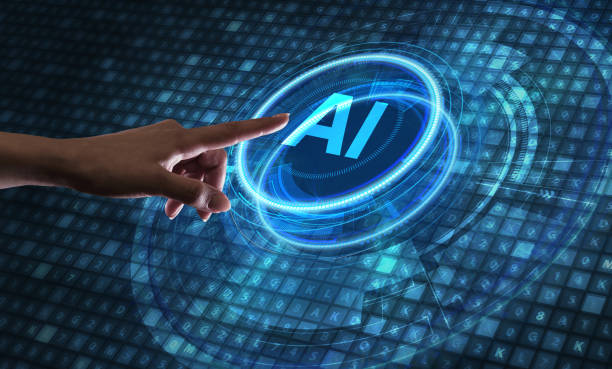
An AI robot consists of two main parts: hardware and software.
Hardware includes the physical components of the robot such as the body, motors, sensors, and processors.
Sensors are responsible for collecting information from the surrounding environment, such as cameras, microphones, and proximity sensors.
Processors are responsible for processing this information and making decisions.
Software includes the algorithms and programs that allow the robot to perform tasks such as object recognition, navigation, and specific tasks.
Artificial intelligence plays an important role in robot software and allows the robot to learn from data, make decisions, and interact with its environment.
The correct combination of hardware and software is key to building an efficient and effective AI robot.
| Component Name | Function |
|---|---|
| Motors | Robot Movement |
| Sensors | Collecting Information from the Environment |
| Processor | Processing Information and Making Decisions |
Applications of AI Robots in Various Industries
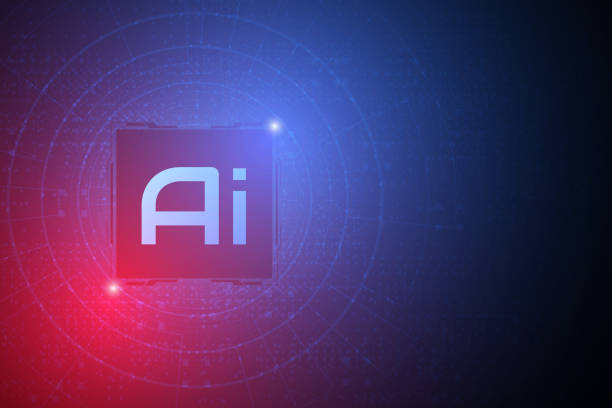
AI robots have a wide range of applications in various industries.
In the manufacturing industry, AI robots are used to perform tasks such as welding, painting, assembling parts, and quality control.
These robots can work with high precision and speed and help improve productivity and reduce costs.
In the healthcare industry, AI robots are used to perform complex surgeries, care for patients, and deliver medication.
These robots can operate with high accuracy and help reduce medical errors.
In the customer service industry, AI robots are used to answer customer questions, provide information, and solve problems.
These robots can be available 24 hours a day, 7 days a week, and help improve customer satisfaction.
In addition, AI robots are also used in other fields such as education, agriculture, transportation, and security.
Using AI robots can help improve the quality of life and increase productivity in various industries.
Are you disappointed with the low conversion rate of your online store?
Rasaweb is your definitive solution with professional e-commerce website design!
✅ Increase your sales and revenue
✅ Unparalleled user experience for your customers
⚡ Get a free consultation right now!
Challenges in Developing and Implementing AI Robots

The development and implementation of AI robots comes with many challenges.
One of the main challenges is the high cost of developing and maintaining these robots.
AI robots require complex hardware and software that can be very expensive.
Another challenge is the need for high expertise and skills to develop and implement these robots.
AI robot developers must have sufficient knowledge and experience in the fields of robotics, artificial intelligence, and programming.
Also, the ethical and legal issues related to the use of AI robots are another important challenge.
For example, who is responsible for the performance of an AI robot if an error occurs? How can we prevent the misuse of AI robots? These challenges need careful attention and review in order to fully benefit from the advantages of AI robots.
What to Expect from the Future of AI Robotics
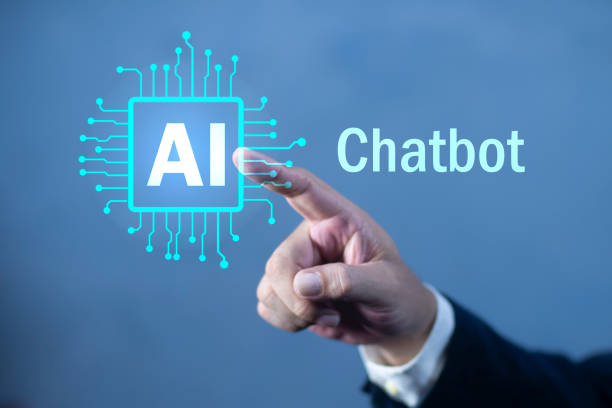
The future of AI robots looks very bright and promising.
With recent advances in artificial intelligence and robotics, AI robots are expected to play a more important role in our lives in the future.
More advanced AI robots will be able to perform more complex tasks and will find more applications in various industries.
For example, AI robots can be used in the future as personal assistants, teachers, doctors, and drivers.
Also, AI robots can help solve global problems such as climate change, food shortages, and infectious diseases.
However, it should be noted that the development and use of AI robots requires attention to ethical and legal issues in order to prevent the misuse of this technology.
Machine Learning and Its Role in the Development of AI Robots
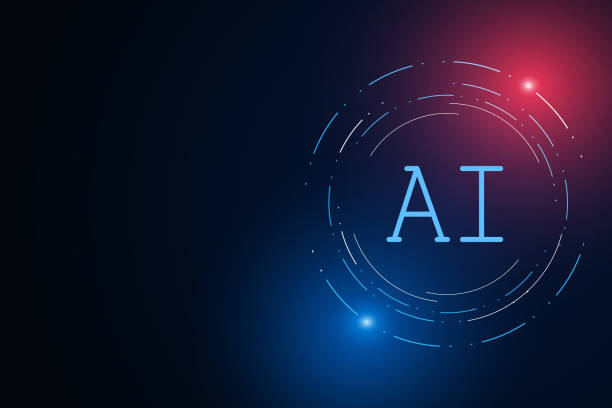
Machine learning is an important branch of artificial intelligence that plays a very important role in the development of AI robots.
Machine learning allows robots to learn from data and improve their performance over time.
AI robots that use machine learning algorithms can identify patterns and relationships in data and use this information to make better decisions.
For example, an AI robot designed for face recognition can learn from different images of faces and improve its ability to recognize faces using machine learning algorithms.
Machine learning allows robots to operate automatically and efficiently in complex and unpredictable environments.
The use of machine learning in the development of AI robots leads to the creation of smarter and more efficient machines.
| Algorithm Name | Application |
|---|---|
| Linear Regression | Predicting Continuous Values |
| Classification | Pattern Recognition |
| Clustering | Data Grouping |
Natural Language Processing and the Communication of AI Robots with Humans
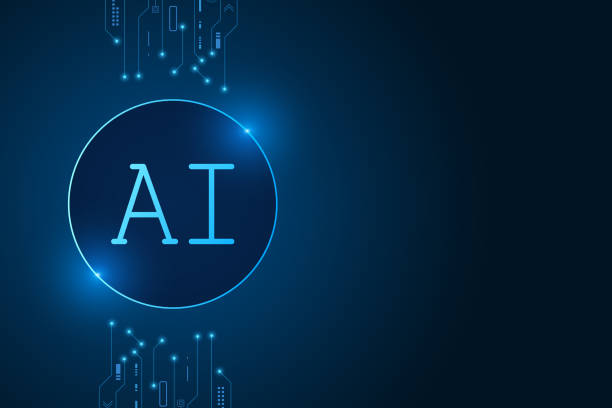
Natural language processing (NLP) is another important branch of artificial intelligence that allows robots to understand human language and communicate naturally with humans.
AI robots that use natural language processing can recognize voice commands, answer questions, and extract information from text.
These capabilities allow robots to be used as virtual assistants, customer service agents, and language translators.
For example, an AI robot that uses natural language processing can answer customer questions about company products and services, take orders, and follow up on complaints.
Natural language processing plays an important role in improving human-robot interaction and leads to the creation of more user-friendly and effective machines.
Thanks to this capability, AI robots are able to understand the user’s intentions and needs and can provide appropriate answers.
Did you know that 85% of customers check your company’s website before any interaction?
With Rasaweb, build a corporate website that deserves your credibility.
✅ Increase customer credibility and trust
✅ Attract high-quality leads
⚡ Get a free website design consultation
The Role of AI Robots in Transforming Businesses
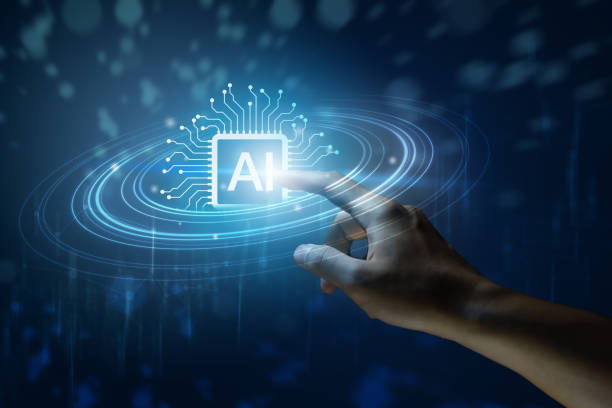
AI robots can play an important role in transforming businesses.
These robots can help improve productivity, reduce costs, increase quality, and improve customer satisfaction.
In the manufacturing industry, AI robots can automate production lines, optimize processes, and prevent errors.
In the customer service industry, AI robots can answer customer questions, solve problems, and provide personalized services.
In the marketing industry, AI robots can analyze customer data, target advertising campaigns, and increase conversion rates.
AI robots can help businesses optimize their processes, make better decisions, and increase their competitiveness.
Using AI robots can help businesses achieve their goals and succeed in today’s competitive market.
Ethical and Social Issues of Using AI Robots
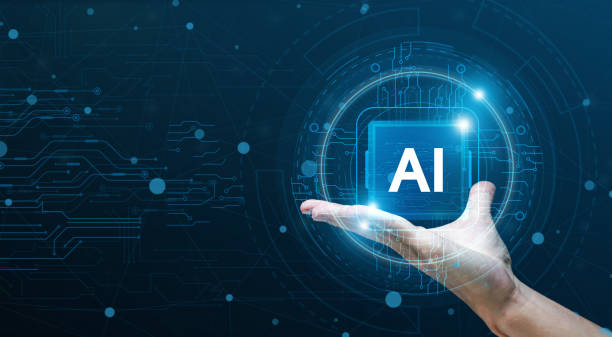
The use of AI robots is associated with several ethical and social issues.
One of the important issues is the impact of robots on employment.
With the automation of many tasks, many people may lose their jobs.
This issue requires careful planning and policy-making to manage these changes.
Another issue is the accountability of robots.
In the event of an error or damage caused by the robot, who is responsible? Developers, manufacturers, or users? This issue requires the development of specific laws and regulations.
Also, issues related to privacy and information security are of high importance.
AI robots have access to a large amount of data, and it must be ensured that this data is properly protected and not misused.
Finally, it should be noted that AI robots are a tool that should serve humans and should not become a tool for control or exploitation.
Paying attention to the ethical and social issues of using AI robots is essential to ensure the sustainable and responsible development of this technology.
Frequently Asked Questions
| Question | Answer |
|---|---|
| What is an AI Robot? | An AI Robot is a machine capable of understanding the environment, reasoning, learning, and making decisions to perform tasks independently. |
| What is the difference between regular robots and AI robots? | Regular robots perform repetitive tasks based on pre-programming, while AI robots can learn from experience, interact dynamically with the environment, and even behave in a way that resembles human intelligence. |
| What are the main applications of AI robots? | They are used in industries (manufacturing, assembly), medicine (surgery, diagnosis), services (customer support, domestic), exploration (space, underwater) and many other fields. |
| What technologies are used in building AI robots? | Machine Learning, Computer Vision, Natural Language Processing, Deep Learning and Robotics are among the key technologies. |
| Can AI robots have emotions? | Currently, robots do not have emotions in the human sense. They can identify and react to emotions, but they do not experience emotions themselves. |
| What are the main challenges in developing AI robots? | Safety, reliability, ethics, autonomy, adaptability to complex environments and natural interaction with humans are important challenges. |
| How are AI robots trained? | They are usually trained using large amounts of data, machine learning algorithms, and deep learning to identify patterns and make decisions. |
| Examples of AI robots in everyday life? | Smart robotic vacuum cleaners, customer support chat robots, self-driving cars, and surgical robots in hospitals. |
| Are AI robots a threat to human jobs? | Some repetitive jobs may be automated, but at the same time, robots can increase productivity and create new jobs in the development, maintenance and monitoring of these systems. |
| How is the future of AI robots predicted? | They are expected to become smarter, more autonomous and capable of performing more complex tasks, and will be in closer interaction with humans in various environments. |
and other services of Rasa Web Advertising Agency in the field of advertising
Smart Brand Identity: A creative platform to improve customer attraction with intelligent data analysis.
Intelligent Website Development: A fast and efficient solution to increase sales with a focus on custom programming.
Smart Brand Identity: A fast and efficient solution to attract customers with a focus on custom programming.
Smart SEO: A dedicated service for growing website traffic based on intelligent data analysis.
Smart Brand Identity: A professional solution for managing campaigns with a focus on SEO-oriented content strategy.
And more than hundreds of other services in the field of internet advertising, advertising consulting and organizational solutions
Internet Advertising | Advertising Strategy | Advertorial
Resources
Analytical Thinking and Decision Making
,What are Analytical Skills?
,What is Analytical Artificial Intelligence?
,What is Artificial Intelligence?
? In the path of digital transformation of your business, Rasaweb Afrin Digital Marketing Agency is your trusted partner with expertise in professional website design and providing comprehensive solutions.
📍 Tehran, Mirdamad Street, next to Central Bank, South Kazerun Alley, Ramin Alley No. 6



